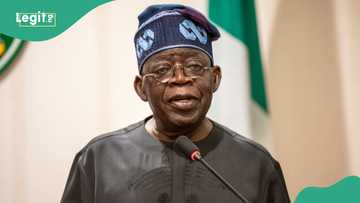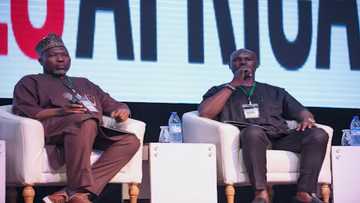Lagos to Generate 200bn From Taxing Freelancers, Influencers, Others
- By adding freelancers and influencers to its income tax net, Lagos State intends to raise revenue by N200 billion annually
- In it planning a summit to address the methods to improve the state's financial capacity and revenue collection through digital technology
- Lagos State intends to establish a resident global digital citizen tax management system as one of these digital economy sectors
Legit.ng journalist Zainab Iwayemi has over 3-year-experience covering the Economy, Technology, and Capital Market.
Lagos state has declared its intention to increase revenue by N200 billion per year by incorporating influencers and freelancers into its income tax net.

Source: Getty Images
This project, which aims to bring in N5 trillion for the state's internal income, will be a major topic of discussion at the upcoming "EKO Revenue Plus Summit," which is set for on September 25 and 26, 2024.

Read also
NUPRC unveils 31 oil blocks, invites foreign investors to buy as Dangote begins crude production
The summit will examine ways to increase the state's financial capability and better use digital solutions for revenue collection, according to a The Cable report.
The government said,
“We have identified four core sub-sectors of the state’s economy, with the potential for additional revenue generation to help us achieve an additional IGR of about N2.73 trillion,”
“The identified sub-sectors in order of priority are property, digital economy, informal sector and circular economy. These sub-sectors are complimented with energy and IPPs, being a support pillar for the four major sub-sectors and a catalyst for general economic development of the state.”
More sectors to be taxed
A resident global digital citizen tax management system is one of these sectors that Lagos state plans to develop in the digital economy.
The technology will target gig workers, independent contractors, influencers, sharing economy operators, and remote workers for international companies.
The system will encompass the certification and licensing of practitioners and operators of the digital economy, encompassing marketplaces, food delivery platforms, shared economy platforms, e-commerce operators, platform owners, and online education platforms.
Two million people in this area are expected to bring in N200 billion a year for the state.
The Lagos digital economy is estimated by the government to be worth between $20 and $25 billion, or roughly 10% of the state's gross domestic product (GDP).
“The digital economy in Lagos is growing at a rapid pace with estimates suggesting a 20-25% annual growth rate,” the document reads.
Lagos State Fintech Hub, Lagos State Software Development Center, and the digitalization of government services and data monetisation are some additional revenue targets for the digital economy sector.
The partnerships with the federal government on the digital service tax (DST), the blockchain and tokenization agenda, the Lagos State Digital Economy Acceleration Hub, and the Lagos State Advertisement Network are also discussed.
Manufacturers, farmers, SMEs to stop paying withholding tax
Legit.ng reported that to lessen the tax burden on enterprises, the federal government has approved exempting manufacturers, farmers, and small businesses from paying withholding tax.

Read also
Legit.ng's Victor Enengedi Moderates Key Panel on Digital Economy at the Nigeria Innovation Summit
Important modifications to the previous tax system were also implemented, including lower rates for companies with narrow profit margins and steps to prevent tax cheating.
Income tax can be collected in advance through the use of withholding tax, which is withheld at rates that vary from 5% to 10% depending on the transaction.
PAY ATTENTION: Сheck out news that is picked exactly for YOU ➡️ find the “Recommended for you” block on the home page and enjoy!
Source: Legit.ng



